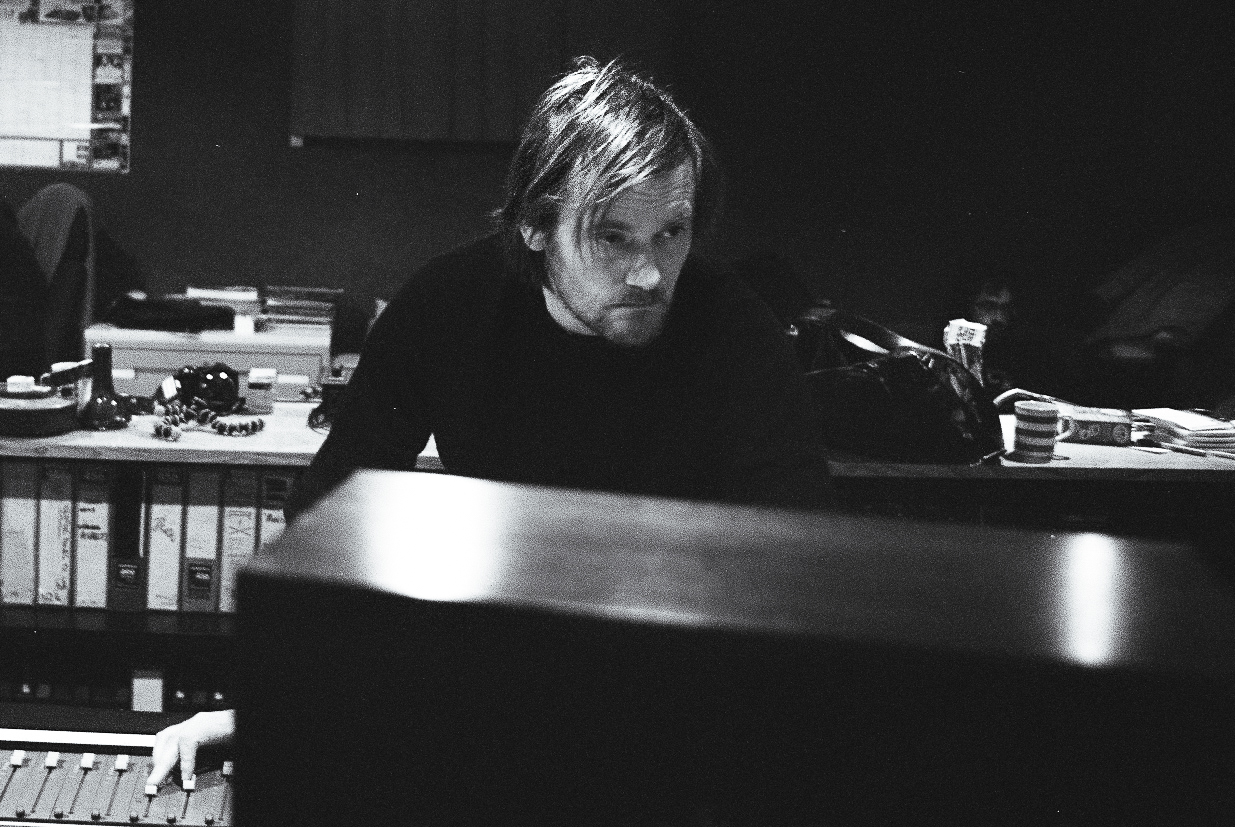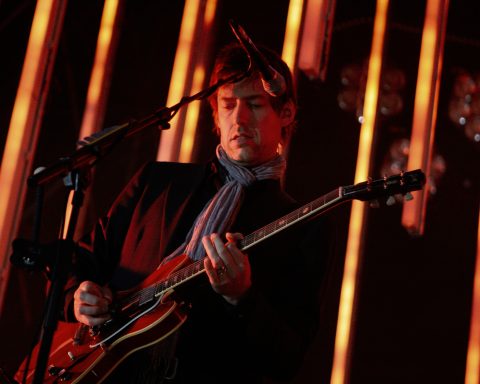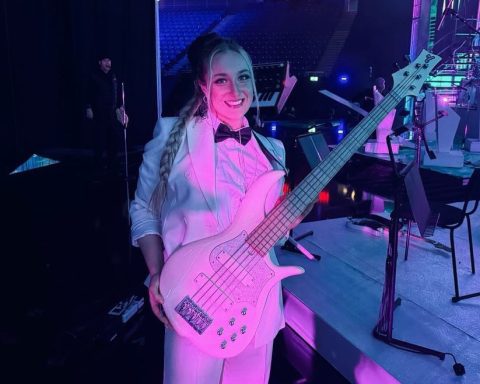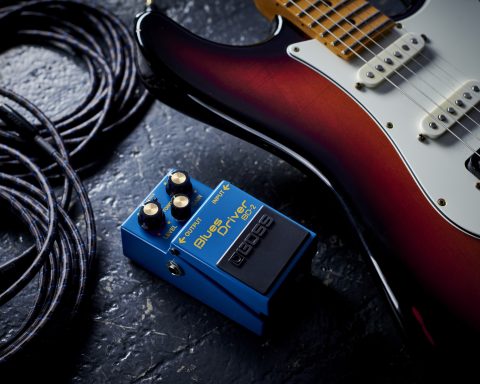Some musicians have a knack for creating sounds that endure, inspiring others to pick up instruments and produce something unusual. Geoff Barrow is one such artist. From his groundbreaking work with Portishead—alongside vocalist Beth Gibbons and guitarist Adrien Utley—to the experimental sounds of BEAK, Barrow is at home painting outside the lines of convention. Perhaps unsurprisingly, that cinematic approach has led him to the world of film scoring and releasing records via his Invada imprint. Barrow opens up about his career, theories about sound, and a long Space Echo history that leads to the BOSS RE-202.
Roots
Despite being behind some of the most influential music of the last twenty-five years, Barrow is remarkably low-key about his beginnings. “I was into hip-hop, a beatmaker, and a drummer,” he recalls. “Then I got a good job at a Coach House Studios studio, which let me meet some people that made music for a living.” It was there he began developing tracks of his own. “I was working on downtime in the studio. They had a collection of library records I could sample, and I had a friend who was a hip-hop DJ.”
"Many people making films now were aware of Portishead and may have been teenagers or a bit younger than I was when we were making that music."
From these experiments, he teamed up with Gibbons and Utley through a string of collaborations to form Portishead. The group’s debut, the Mercury-prize-winning Dummy, remains an influence on artists across many styles. Spurred on by the cross-pollination of Barrow’s production, Utley’s instrumentation, and the plaintive vocals of Gibbons, Portishead concocted their own sound. A crucial ingredient was the group’s analog-centric approach to creating its samples—even recording direct to vinyl.
Reverence for the Portishead catalog furthered Barrow’s burgeoning career. “It’s opened doors for me in areas I don’t think would have been open,” he says. “Many people making films now were aware of Portishead and may have been teenagers or a bit younger than I was when we were making that music.”
"The ultimate goal was a chance to remix American hip-hop. That was the icing on the cake of anyone's career."
Icing on the Cake
One of the new opportunities that emerged was remixing. Barrow lent his hand to tracks by Depeche Mode, Primal Scream, and others. He offers his thoughts on reimagining a song by another act. “It was very much part of the UK scene,” Barrow posits. “It was about how heavy you could make a not-particularly-heavy song.”
Still, to him, there remained an unmistakable benchmark for remix success. “The ultimate goal was a chance to remix American hip-hop. That was the icing on the cake of anyone’s career.”
Settling the Score
Increasingly, a large portion of the sessions at Invada Studios revolve around film work. “Composing is now my job,” Barrows explains. “We do all Alex Garland’s films—Ex Machina and Annihilation, the Devs TV show.”
Invada has built a rich catalog of acclaimed soundtracks, including Stranger Things by Kyle Dixon and Michael Stein, Jonny Greenwood’s The Power of the Dog, and multiple titles by Nick Cave and Warren Ellis.
Barrow loves the fact that the boundaries of film music have now stretched to include a more eclectic range of practitioners. “What’s brilliant about what’s happening with scores is you’ve got people from experimental music moving into the field.”
"What's brilliant about what's happening with scores is you've got people from experimental music moving into the field."
BEAK Performance
Still, Portishead and film composing are just two aspects of Barrow’s formidable resume. He’s also a member of the mysterious trio BEAK. Formed at an Invada records Christmas party, the group emerged from a massive jam. “Bill is the most creative, most astonishing musician I’ve ever played with in my life,” Barrow remarks about collaborator, Billy Fuller. “His music comes from somewhere I would only dream if I had the ability.”
The group relished that initial improvisational experience so much that Barrow asked the group to reconvene at his studio. “The first thing we played is the first track on the BEAK album—that take.” There was an immediate contrast between the meticulous Portishead process and the freeform BEAK approach. “It was just freedom and joy. I felt like a 16-year-old or 13-year-old kid on the drums.”
A Forest of Echoes
The atmospheric tone of the Roland Space Echo is an essential component of both BEAK and Portishead. “We’ve had tons of them,” Barrow says. “When Portishead played live, we had two out front in the mix and six on stage. The whole band went through them, you know?” The group also relied on the BOSS RE-20. “We used them in line as backups. If a Space Echo broke, we would go to the pedal. We had many as many pedals as we had Space Echoes.”
BOSS RE-202 On Tour
Barrow offers ample praise for the BOSS RE-202, which has become a cornerstone of the BEAK live shows. Of late, these have included high-profile festival appearances like Primavera in South America. “With BEAK, we use four of them when we play,” he reveals. “We’ve got one in the front in our mix. Bill’s got one, Will’s got one, and I’ve got one. The whole of BEAK’s vocals goes through it.”
"With BEAK, we've got one in the front in our mix. Bill's got one, Will's got one, and I've got one. The whole of BEAK's vocals goes through the RE-202."
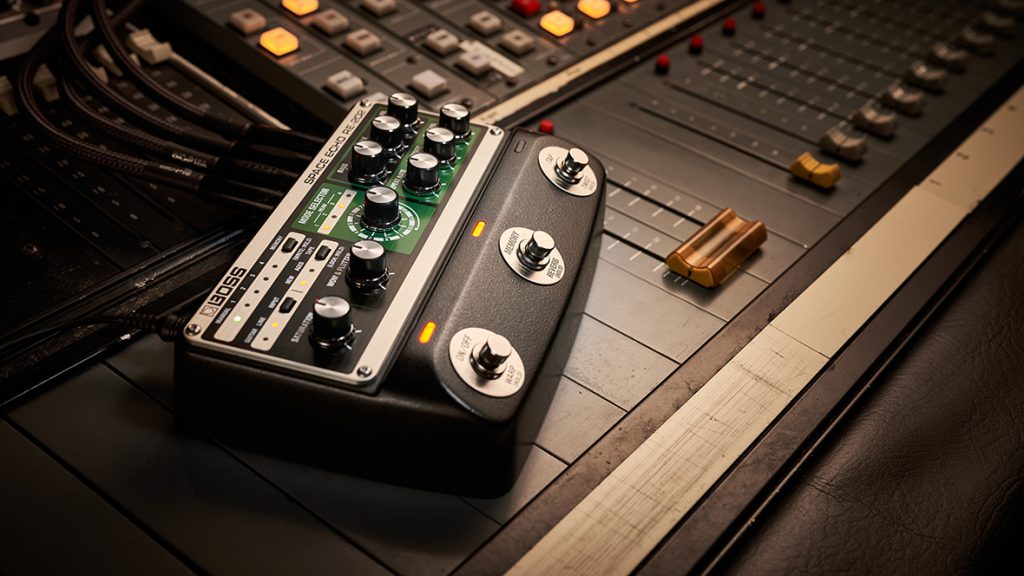
He enjoys the immediate responsiveness of the controls. “Working musicians need to swap quickly when they need to change sounds. The RE-202 does what it says. When you say turn down the top or turn up the bass, it actually happens.” He points to an example from the BEAK set. “There is one track where there is less top on the actual vocal, but the delay coming back is really toppy. The delay becomes the main vocal.”
There is another RE-202 feature Barrow appreciates greatly. “Being able to store the sounds is a godsend. I used to struggle all the time. Now, I just dial it really quickly, save each one, and it’s done.”
"Being able to store the sounds on the RE-202 is a godsend. I used to struggle all the time. Now, I just dial it really quickly, save each one, and it's done."
Delay: The Inevitable
Barrow has a theory about music in which delay plays a role. “I’ve always believed in this thing called the sonic unconscious. I think there’s a similar thing with sound,” he posits. “That’s what I’ve worked on. I think delay is a huge part of it—whether through reggae or Joe Meek Productions.”
One artist holds the crown for Barrow, however. “You cannot mention echo without King Tubby, the roughness and spiritual nature of his dubs, through color and parametric EQ,” he says. “To me, it’s the most perfect music that ever existed.”
